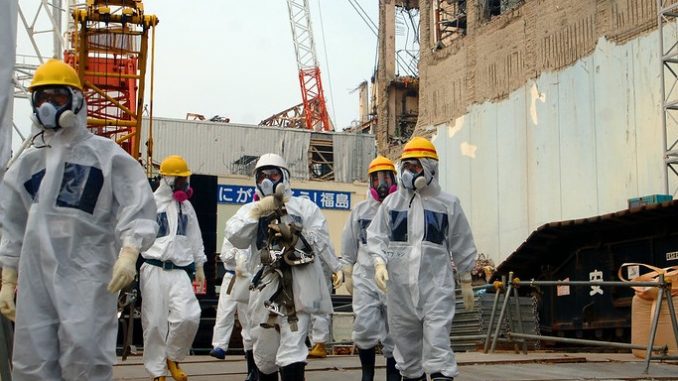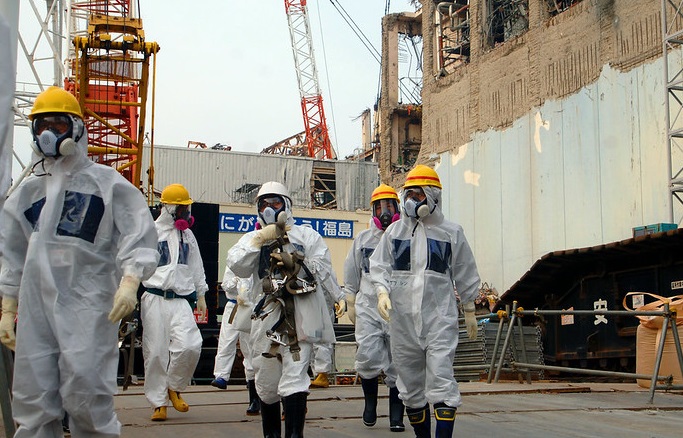

Don’t let Leftist social media shut us out! Sign up for Daily Surge’s daily email blast… it’ll keep you updated on each day’s Daily Surge new columns. Go to dailysurge.com and sign up under “Free Newsletter” on the right side of the page, one-third of the way down. It’s easy! And like it says, it’s free!
Surge Summary:
by Rob Morse
None of us understand very much. That doesn’t mean we’re stupid, but that there is so very much to know. That perspective is critical when deciding political issues at the ballot box. You may have several masters degrees, but if you were paying attention even a little bit then you learned how little you really understand. Our universal ignorance means that grand political proposals are far more likely to fail than to succeed. We simply take too much for granted. If you doubt me then I’d like to ask you some simple questions. Tell me where your water, your electricity, and your food come from? Where are your clothes made? It is a fine answer if children say that water comes from the faucet and food comes from DoorDash. I expect better answers from adults. Knowing where life’s essentials come from are some of the simplest questions that describe your life. I didn’t ask you where people all over the world meet their needs. Not yet. At first I only asked about you. Let me show you a few arguments for modesty and humility.
Water is the elixir of life. We need water every day. We use a lot of it for drinking, for washing, and for preparing our food. When you build a new house in town, you usually pay a fee to connect to the city water supply. That works for you. Now let’s consider other people.
There are a few cities in the US who get water from hundreds of miles away, but have outlawed making water for themselves. Saying that desalination and water purification is too “industrial” for your town is certainly an elitist attitude. It says, ‘I have mine, and the rest of you can do without.’
People who collect rainwater, people who use a local spring or a hand-pumped-water-well, they know exactly where their water comes from. They know its virtues and its faults. They also know when the well is about to run dry and they have to travel to town to do their laundry. If you’ve been without them then you know that water and power are more than a matter of convenience.
Electricity and water are matters of public health. We get sick without clean water and sanitation. I had lots of reasons to get a generator when our power grid was damaged. Getting clean water from our well and running our septic system were some of our greatest needs. We could get a few gallons of water to drink each day, but having clean clothes meant driving a few hundred miles away.
Electricity is the definition of progress. You already knew that gas stations need electricity to pump gasoline from their tanks, so of course you see the problem after a storm. How would you charge an electric car after an ice storm or a hurricane? Having electricity brought me enough water to cook, to clean dishes, and to flush our toilets. Once we had these basics, then it was easier to help other people.
What are we saying to other countries when we tell them they can’t provide electricity for their citizens? Millions of children don’t go to school today because their job is to carry water from streams and from wells to their family’s homes and their farms. Millions of womens’ only job is to wash clothes because they don’t have power to run a water pump and a washing machine. Having affordable electricity means more of their children will live and that everyone will live longer.
Women learn to read when they don’t have to wash clothes all day every day. When their children don’t die as often from water-born diseases, then they have fewer children. I assume you knew that.
Speaking of elites, I’m sad that the San Francisco bay area has elite billionaires who dictate environmental restrictions on the rest of the world while the city of San Francisco has one of the worst sewage treatment systems of any major city. What is out of sight is evidently out of mind, and the news media would never shame the people of San Francisco for putting sewage and street runoff into the bay when it rains. San Francisco elites would rather donate to politicians than clean up their own city. You already knew that, didn’t you?
I’m sitting in an area of the southern United States that is served by several nuclear power plants and a few natural gas fired generating plants. Having more than one source of power was vital when we were hit by severe storms. Having a local power plant that could make a “black start” was important since it gave us power weeks earlier than having to wait until the local power station was re-connected to the larger grid.
Stores can’t open when the lights go out, so all of us are more vulnerable than we think.
Maybe you have a solar system at your house. Most of our residential solar systems need to be connected to the grid in order to make power for our home. The short answer is that these systems get their frequency and voltage stability from the grid. The longer answer is that “renewable” sources of power like wind and solar are unreliable in that they are on one minute and off the next. We not only pay for the solar panels on our roofs, but we have to keep the large utility plants running to give us power when the wind stops blowing for a minute.
In theory we replaced a little fossil fuel with solar and wind for a few hours a day. In practice, the fuel used in generating plants is only a small part of our electricity bill. Most of the cost of electricity is in building costs and interest charges on the power plants and transmission lines. That means that renewables only save us a little money when they work, but we pay for solar, wind, and fossil power plants even when we don’t use them.
A few solar-electrical systems use battery banks to store power. Those systems are usually used on small boats or recreational vehicles that operate far from utility power. Those systems don’t scale very well. If you want power all the time then the battery storage system will cost more than ten times what the solar or wind system costs. A major issue to get reliable power depends on how long we will be without bright sunlight and strong winds. Will it be minutes, hours, or days? Running out of power means our house gets cold and we sit in the dark. I’ve been there. It is uncomfortable.
There are practical considerations too. It would take today’s battery manufacturers decades to make enough batteries to power the entire United States over a cold, dark winter night. People who say we should get power from solar power and batteries probably haven’t seen the way large industries need power. Making steel, aluminum, glass, cement, or plastics takes a huge amount of electricity and fuel. So does recycling those materials or making electronics.
More important is that the power has to be reliable to be useful. What do you think happens if you shut down the electrical power to a food processing plant for even a minute? How about shutting off power at a drug manufacturing plant or a hospital? What happens to electric trains when the power is cut off? What happens to factories weaving cloth or turning cloth into clothing?
If you’re weaving cloth then you usually can’t pick up exactly where you left off. That means you end up throwing flawed material into the trash. That is costly and inconvenient. Plunging a hospital into darkness can kill patients and endanger the staff. Unreliable power isn’t worth very much. I’m sure you knew that.
We expect the lights to come on when we flip the switch. That isn’t true for much of the world. I’ve heard of well-to-do families who routinely used a generator to keep their refrigerator and their water pump working when the power grid failed (again). Other times, the hotel manager would visit the guests at night to tell them that he was turning off the hot water and the overhead electric lights. That was in the good hotels that had their own generating system and electric lights. The local medical clinic and the pharmacy needed expensive battery systems to keep some medicines cool and to keep others from freezing. You knew that most of the world isn’t like us, didn’t you?
Part two tomorrow …
Sources-
- https://www.researchgate.net/publication/335904111_Short-Term_Wind_Power_Forecasting_on_Multiple_Scales_Using_VMD_Decomposition_K-Means_Clustering_and_LSTM_Principal_Computing
- https://www.cfact.org/2019/04/26/batteries-cannot-make-renewables-reliable/
- https://www.technologyreview.com/2018/07/27/141282/the-25-trillion-reason-we-cant-rely-on-batteries-to-clean-up-the-grid/
- https://www.rationaloptimist.com/blog/batteries/
- https://www.weforum.org/agenda/2018/08/planet-earth-has-more-trees-than-it-did-35-years-ago/
- https://www.un.org/en/global-issues/ending-poverty
- https://en.wikipedia.org/wiki/Fertilizer#Nitrogen_fertilizers
The views here are those of the author and not necessarily Daily Surge.
Originally posted here .
Image: https://creativecommons.org/licenses/by-sa/2.0/; Adapted from: Photo Credit: Greg Webb / IAEA; https://www.flickr.com/photos/iaea_imagebank/8657963646
The post In Praise of Modest, Humble People … Who Recognize What They Know, Don’t Know About Modern Life … (Pt 1) appeared first on DailySurge.